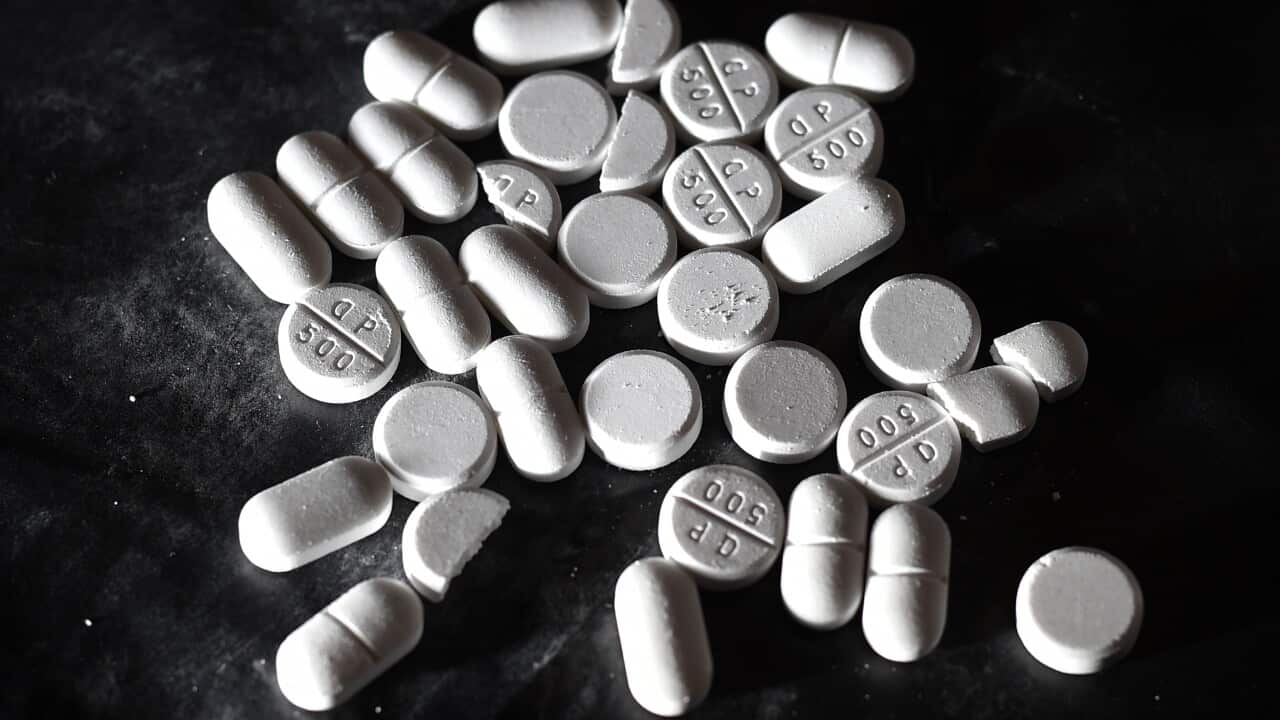Key Points
- The Therapeutic Goods Administration (TGA) has released an interim decision on the sale of paracetamol products
- It has proposed limiting pack sizes available in supermarkets and on shelves in chemists
- Larger quantities would only be available behind-the-counter at pharmacies
Pack sizes of paracetamol products like Panadol could be reduced from 1 June 2024, under an interim recommendation from the Therapeutic Goods Administration (TGA) in an attempt to reduce intentional overdoses.
The TGA published its delegate's interim decision on the sale of paracetamol products on Friday, which rejected including placing age limits on customers and limiting the number of packs that consumers could buy.
Instead, the TGA has proposed:
- Packs of paracetamol available in supermarkets and convenience stores reduced to 16 tablets or capsules (from 20 currently);
- Packs available on chemist shelves reduced to 32 tablets or capsules (from 100 currently); and
- Other larger packs of up to 100 tablets or capsules would only be available with the supervision of a pharmacist.
Tablets sold in supermarkets and on chemist shelves would only be available in blister packs to deter people from consuming large quantities of pills. Packs available from behind the counter at pharmacies may be available in blister packaging or in bottles.

Australians wanting to buy larger quantities of paracetamol will have to get these from behind the counter at a pharmacy under proposed changes by the TGA. Source: AAP
Decision aimed at reducing overdoses
The decision follows an independent expert report commissioned by the TGA that looked at intentional overdoses using paracetamol.
Around 50 Australians die every year from paracetamol overdose and around 225 are hospitalised. Rates are highest among adolescents and young adults.
Findings of the report included that more than half of intentional paracetamol overdoses involved the consumption of whatever number of tablets were already available at home, and that overdoses were frequently impulsive using drugs already present in the home.
The TGA interim decision suggests a reduction in pack sizes will likely reduce the total quantity of paracetamol in homes, which will also reduce the amount available to be consumed on impulse.
In making the decision, the TGA rejected other options including restricting the sale of paracetamol to those aged over 18, acknowledging this was likely to have a limited impact on overdosing behaviour and would impact younger people living independently.
It also accepted there were considerable challenges with enforcing limits on the number of packs sold in retail settings, however the TGA will encourage retailers to restrict sales to one single pack at a time.
The option of placing tablets behind the counter in retail outlets was also not supported, partly due to the inconvenience to consumers and possible undermining of confidence in the safety of paracetamol.

Consumers wanting to buy paracetamol such as Panadol in supermarkets could be restricted to purchasing packs of 16 tablets. Source: AAP / Dan Peled
"I am of the view that my decision is balanced and a proportionate response to minimise harm from intentional self-poisoning with paracetamol," the TGA delegate stated in the interim report.
The delegate also noted that further changes could be adopted if new evidence comes to light.
Proposals welcomed but education still needed
Painaustralia chief executive officer Giulia Jones welcomed the decision not to pursue some of the other more contentious measures.
"It's a sensible outcome given what was being proposed," Ms Jones said.
"We'd prefer it if they didn't make packets smaller but because they're not putting a purchase limit in, if you need three packets at a time ... you can still get your supply, even in a supermarket."
But Ms Jones does not believe reducing pack sizes will address the problem of overdoses, and an education program was likely needed to get parents thinking about how many packs of paracetamol they should have readily accessible to teenagers.
"We haven't had locking medicine cabinets since the 80s in homes and maybe it's time to consider that again," she said.
Readers seeking crisis support can contact Lifeline on 13 11 14, the Suicide Call Back Service on 1300 659 467 and Kids Helpline on 1800 55 1800 (for young people aged up to 25). More information and support with mental health is available at and on 1300 22 4636.
supports people from culturally and linguistically diverse backgrounds.










